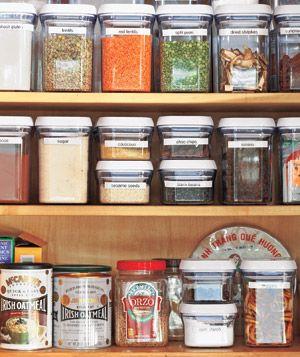Understanding Leaky Gut
Leaky gut, or increased intestinal permeability, occurs when the lining of the small intestine becomes damaged. This damage allows undigested food particles, toxins, and bacteria to "leak" through the intestinal wall into the bloodstream, triggering inflammation and a host of health issues.
" All disease begins in the (leaky) gut." – Dr. Alessio Fasano, Director of the Center for Celiac Research and Treatment at Massachusetts General Hospital.
In this blog, we’ll uncover the common causes of leaky gut, explore its symptoms, and outline effective strategies for healing, while also touching on related concerns like IBS support, SIBO natural treatment, and histamine intolerance.
The Role of the Gut Lining
The gut lining plays a crucial role in your health. It acts as a barrier, controlling what gets absorbed into your bloodstream.
When this lining is compromised, it can lead to increased intestinal permeability. This is the hallmark of Leaky Gut Syndrome.
Common Causes of Leaky Gut
Understanding the common causes of leaky gut is crucial for prevention and management. By identifying and addressing these underlying causes, you can take proactive steps towards healing your gut and improving overall health.
- Poor Diet
A diet high in processed foods, sugar, alcohol and unhealthy fats can significantly contribute to leaky gut. These foods can irritate the gut lining and disrupt the balance of good and bad bacteria in the gut microbiome.
Additionally, gluten, found in wheat and other grains, is a known irritant that can exacerbate leaky gut symptoms, especially in individuals with gluten sensitivity or coeliac disease.
- Chronic Stress
Stress isn’t just a mental issue; it has profound effects on physical health, including gut health. Chronic stress can weaken the immune system, reduce blood flow to the digestive tract, and alter gut microbiota, all of which can contribute to the development of leaky gut.
- Medications
Certain medications, particularly nonsteroidal anti-inflammatory drugs (NSAIDs) like ibuprofen and aspirin, can damage the gut lining when used frequently.
Antibiotics, while necessary for treating bacterial infections, can also disrupt the gut microbiome, potentially leading to increased intestinal permeability.
- Infections and Toxins
Infections, whether bacterial, viral, or fungal, can disrupt the gut barrier function. Additionally, environmental toxins like pesticides, heavy metals, and even certain food additives can contribute to gut inflammation and permeability.
- Dysbiosis
An imbalance in the gut microbiome, known as dysbiosis, is both a cause and a consequence of leaky gut. Conditions like SIBO (Small Intestinal Bacterial Overgrowth) can exacerbate this imbalance, making natural treatments for SIBO an essential part of managing leaky gut.
Leaky Gut Symptoms
Recognising the symptoms of Leaky Gut Syndrome can be challenging. This is because the symptoms can be quite varied and may mimic other health conditions.
- Digestive Issues
Common digestive symptoms include bloating, gas, diarrhoea, and constipation. Many people with leaky gut also experience symptoms of IBS, making effective IBS support critical.
- Chronic Fatigue
Ongoing inflammation and the body’s immune response to leaked substances can lead to persistent fatigue and low energy levels.
- Joint Pain
Inflammation triggered by a leaky gut can also affect the joints, causing pain and stiffness similar to arthritis.
- Skin Problems
Conditions like acne, eczema, and psoriasis are often linked to gut health. Leaky gut can contribute to skin inflammation and flare-ups.
- Food Sensitivities
Increased intestinal permeability can lead to heightened immune reactions to certain foods, resulting in new or worsening food sensitivities, including histamine intolerance.
- Mood Disorders
The gut-brain axis plays a crucial role in mental health. Leaky gut has been associated with mood disorders like anxiety and depression due to the systemic inflammation and altered neurotransmitter production.
How to Test For Leaky Gut
The gold standard test for leaky gut has been around for a long time. It's called the Lactulose:Mannitol test in Australia. In other countries different sugar may be used but following the same method.
This urine test uses Mannitol as the small sugar used, it's small and easily absorbed through a healthy intestinal lining. It serves as a marker for normal absorption. Lactulose is the larger sugar and poorly absorbed by a healthy gut. It serves as a marker for intestinal permeability. If the intestinal lining is compromised (leaky), more lactulose will pass through into the bloodstream.
The urine samples are sent to a laboratory for analysis. The lab measures the amounts of lactulose and mannitol excreted in the urine.
Interpretation of Results:
- High Mannitol Levels: Indicate good absorption and a healthy intestinal lining.
- High Lactulose Levels: Suggest increased intestinal permeability, often referred to as "leaky gut."
- Lactulose to Mannitol Ratio: The ratio of lactulose to mannitol is calculated. A high ratio indicates increased permeability of the intestinal lining, suggesting the presence of a leaky gut.
If you'd like to do a Lactulose:Mannitol test for leaky gut with a results consult and action steps for leaky gut email: [email protected] and we'll get you started.
Action Steps to Resolve Leaky Gut
Healing a leaky gut requires a multifaceted approach that includes dietary changes, stress management, and specific supplements.
- Revise Your Diet
Eliminating foods that irritate the gut lining is a critical first step. This includes gluten, dairy, sugar, and processed foods. Instead, focus on a diet rich in whole foods, including:
- Bone Broth: High in collagen and amino acids that support gut lining repair.
- Fermented Foods: Such as sauerkraut, kimchi, and kefir, which promote a healthy gut microbiome.
- Anti-Inflammatory Foods: Like leafy greens, berries, and fatty fish, which help reduce inflammation.
- Hydration: Drink plenty of filtered water.
- Support Digestive Health
For those with IBS or SIBO, tailored support and natural treatments are essential. Probiotics and prebiotics can help balance gut bacteria, while specific SIBO natural treatments, such as herbal antimicrobials, can address bacterial overgrowth without disrupting the microbiome as antibiotics might.
- Manage Stress
Incorporating stress management techniques is vital for gut health. Practices such as mindfulness meditation, yoga, and regular physical activity can help reduce stress and its negative impact on the gut.
- Consider Supplements
Several supplements can support gut healing:
- L-Glutamine: An amino acid that helps repair and maintain the gut lining.
- Zinc Carnosine: A combination of zinc and the amino acid carnosine, which has been shown to support gut health.
- Probiotics and Prebiotics: To promote a balanced gut microbiome.
- Digestive Enzymes: To aid in the breakdown and absorption of nutrients, reducing the burden on the gut.
- Avoid Gut Irritants
Be cautious with medications that can harm the gut lining, such as NSAIDs. If you need these medications, discuss alternatives with your healthcare provider.
- Address Food Sensitivities
An elimination diet to test for food sensitivities and eliminating problematic foods can reduce inflammation and support gut healing. If histamine intolerance is an issue, following a low-histamine diet and addressing gut health can be particularly beneficial.
- Seek Professional Guidance
Working with a nutritionist who understands leaky gut and its related conditions is crucial. We can offer personalised advice and treatments, including specific IBS support and SIBO natural treatments tailored to your needs.
Leaky gut is a complex condition that can have widespread effects on your health. By understanding its causes, recognising the symptoms, and taking actionable steps to heal your gut, you can improve your overall well-being. For those with IBS, SIBO, or histamine intolerance, targeted support and natural treatments can make a significant difference in managing symptoms and restoring health.
If you’re looking for a comprehensive program to help balance your microbiome and heal leaky gut, check out our Gut Fix program. Let us guide you on your journey to better digestive health and vitality.
References:
Fasano, A. (2020). All disease begins in the (leaky) gut: Role of zonulin-mediated gut permeability in the pathogenesis of some chronic inflammatory diseases. F1000Research, 9, F1000 Faculty Rev-69. https://doi.org/10.12688/f1000research.20510.1


